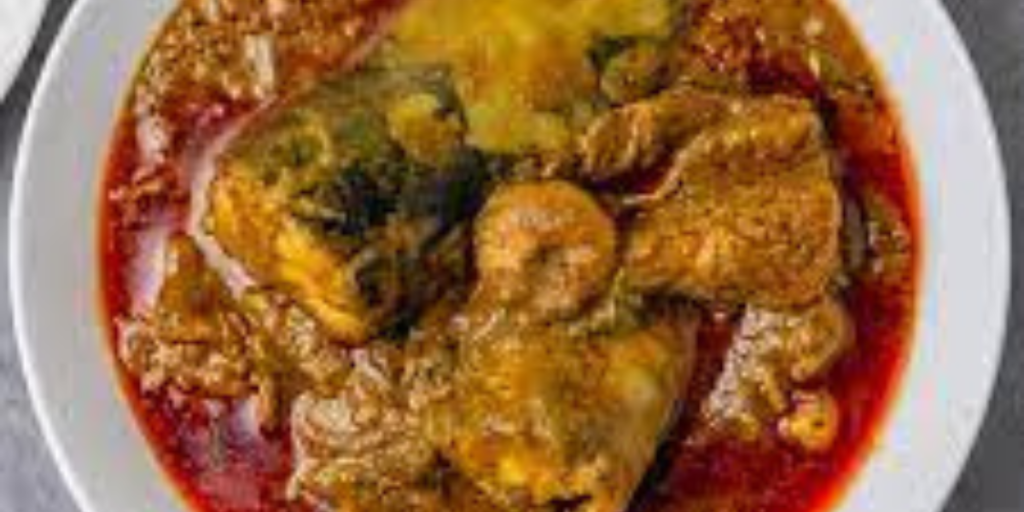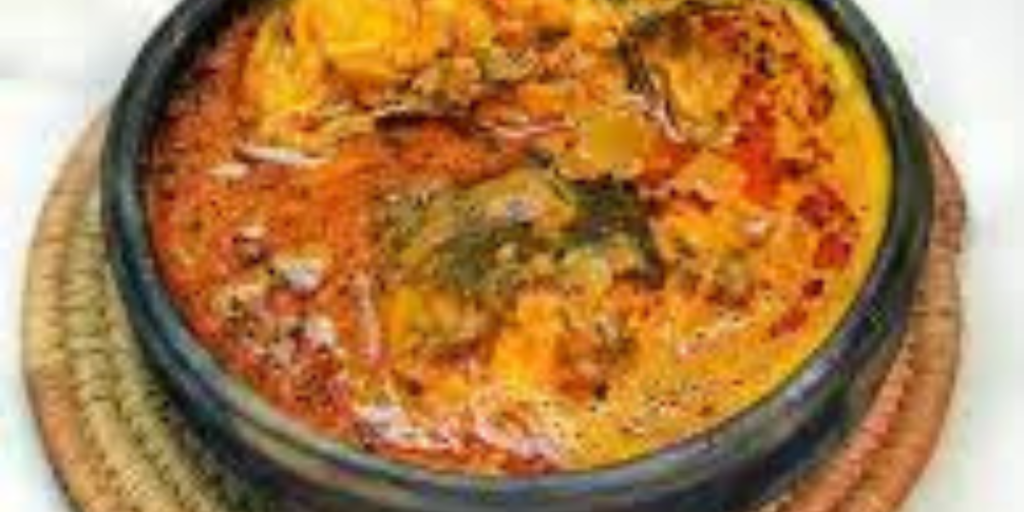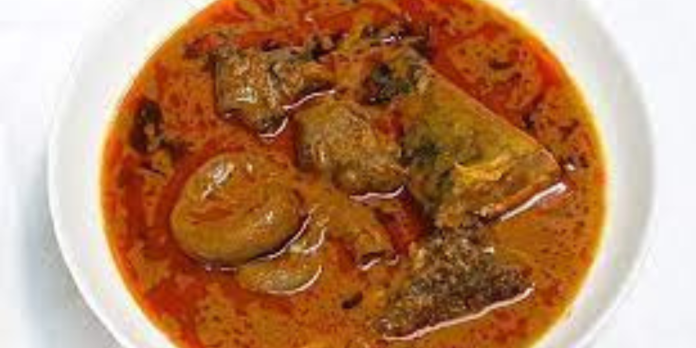Table of Contents
Embarking on a culinary journey through the vibrant flavors of West Africa, we find ourselves drawn to the rich and aromatic delights of Banga soup. This traditional dish, beloved for its depth of flavor and comforting warmth, holds a special place in the hearts and palates of those who savor its delights. As we delve into the art of Banga soup preparation, one question arises: what can be used to achieve that perfect, velvety texture that defines this iconic dish? Join us as we explore the various ingredients and methods used to thicken Banga soup, unlocking the secrets to culinary mastery and discovering the key to a truly unforgettable dining experience.
Banga soup, also known as Ofe Akwu, is a delightful Nigerian dish known for its rich flavors and creamy texture. Made from palm nuts, this soup is a staple in many Nigerian homes and restaurants, often served with starches like pounded yam or eba. However, achieving that perfect thickness can sometimes be a challenge, especially for those new to the culinary art of Nigerian cuisine. Fear not, for we delve into the world of Banga soup thickening agents, exploring six ingredients that can elevate your cooking game.
1. Ground Oatmeal : Banga Soup Thickner

One of the simplest and most effective ways to thicken Banga soup is by adding ground oatmeal. This pantry staple not only thickens the soup but also adds a subtle nutty flavor that complements the richness of the palm nut base. Simply grind rolled oats into a fine powder and sprinkle it into the simmering soup, stirring continuously to prevent clumping.
How to fry a chicken 3 steps In 2024? Best Recipe
2. Cocoyam
Cocoyam, known locally as “ede” or “ede ocha” in Nigeria, is a traditional thickener for Banga soup. This starchy tuber is peeled, boiled, and then mashed into a smooth paste before being added to the soup. The cocoyam not only thickens the soup but also adds a unique flavor profile that is characteristic of many Nigerian dishes.
What Is The Secret To Good Fried Chicken in 2024
3. Ground Melon Seeds (Egusi)
Egusi seeds are a versatile ingredient in Nigerian cuisine, often used to thicken soups and stews. When ground into a fine powder, these seeds create a thickening agent that adds a nutty undertone to the Banga soup. Simply toast the egusi seeds, grind them, and then sprinkle the powder into the simmering soup, stirring well to incorporate.
Why Nigerian Jollof Is The Best In 2024
4. Cornstarch
For a quick and easy thickening solution, cornstarch comes to the rescue. Mix a tablespoon of cornstarch with a bit of water to create a slurry, then gradually stir it into the soup as it simmers. This method ensures a smooth, lump-free consistency, perfect for those who prefer a lighter texture to their Banga soup.
What Is American Pancake Syrup? Best Description
5. Ground Crayfish
Crayfish, a common ingredient in Nigerian cooking, not only adds a depth of flavor but also acts as a thickening agent. Grind dried crayfish into a powder and add it to the soup during the cooking process. As it simmers, the crayfish will release its flavors while helping to thicken the Banga soup to perfection.
6. Palm Oil
Last but certainly not least, palm oil is a key ingredient in Banga soup that contributes to its rich, velvety texture. As the soup cooks, the palm oil naturally emulsifies with the other ingredients, creating a thick and glossy consistency. For those looking to enhance the thickness further, a bit more palm oil can be added towards the end of cooking.

In the world of Nigerian cuisine, Banga soup stands out as a flavorful and comforting dish that warms both the body and soul. Whether you prefer a thick and hearty texture or a lighter, more delicate broth, there are numerous ways to achieve the perfect consistency. From pantry staples like ground oatmeal and cornstarch to traditional ingredients such as cocoyam and egusi, each option offers a unique flavor profile that enhances the essence of Banga soup. So, next time you find yourself craving this Nigerian delicacy, don’t hesitate to experiment with these thickening agents and unlock a world of rich, satisfying flavors.
As we reach the conclusion of our exploration into thickening techniques for Banga soup, we find ourselves armed with a variety of ingredients and methods to achieve the perfect consistency in this beloved West African dish.
One common method to thicken Banga soup is through the use of ground crayfish or dried fish. These ingredients not only add depth of flavor to the soup but also act as natural thickeners, helping to give it a rich and hearty texture. Simply grind the crayfish or dried fish into a fine powder and stir it into the soup during cooking to achieve the desired thickness.
Another popular option is the use of starches such as cassava flour or cornstarch. These gluten-free thickeners are readily available and easy to use, making them ideal for thickening Banga soup to your liking. Simply mix a small amount of cassava flour or cornstarch with water to form a slurry, then gradually stir it into the soup until the desired thickness is achieved.
For those looking for a more traditional approach, palm kernel fruit extract, also known as Banga spice or Banga paste, can be used to thicken the soup. This flavorful ingredient not only adds authenticity to the dish but also helps to give it a creamy texture that is characteristic of Banga soup. Simply add the palm kernel fruit extract to the soup during cooking and simmer until it reaches the desired thickness.
In addition to these methods, some cooks opt to use a combination of ingredients to achieve the perfect consistency in their Banga soup. Whether it’s a blend of ground crayfish and cassava flour or a mix of palm kernel fruit extract and dried fish, the key is to experiment and find the combination that works best for you.
In conclusion, there are many options available when it comes to thickening Banga soup, from natural thickeners like ground crayfish and dried fish to starches such as cassava flour and cornstarch, as well as traditional ingredients like palm kernel fruit extract. With a bit of experimentation and creativity, you can achieve the perfect texture and flavor in your Banga soup, ensuring a delicious and satisfying meal every time.





















